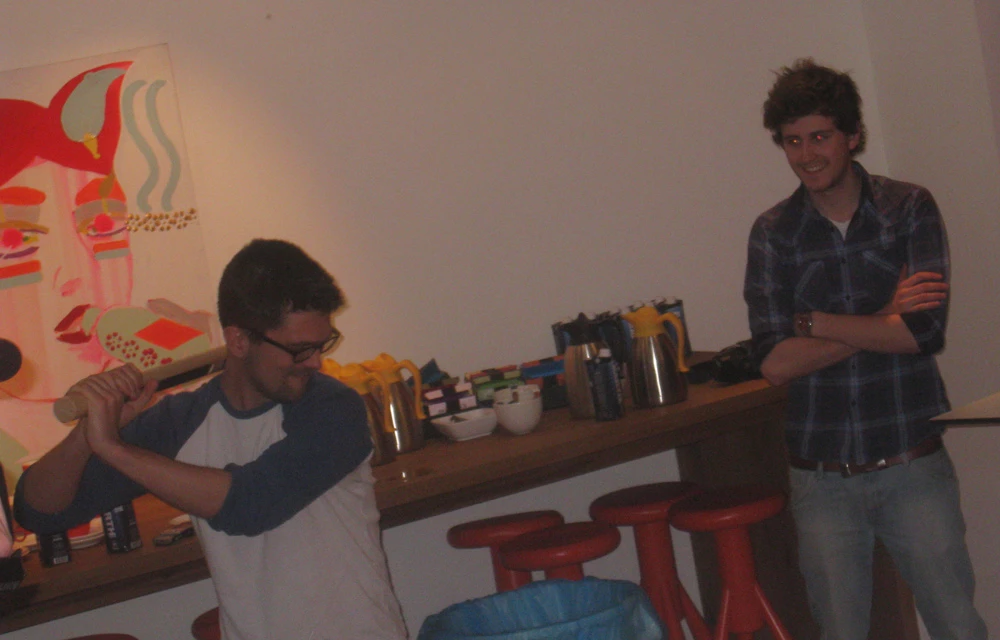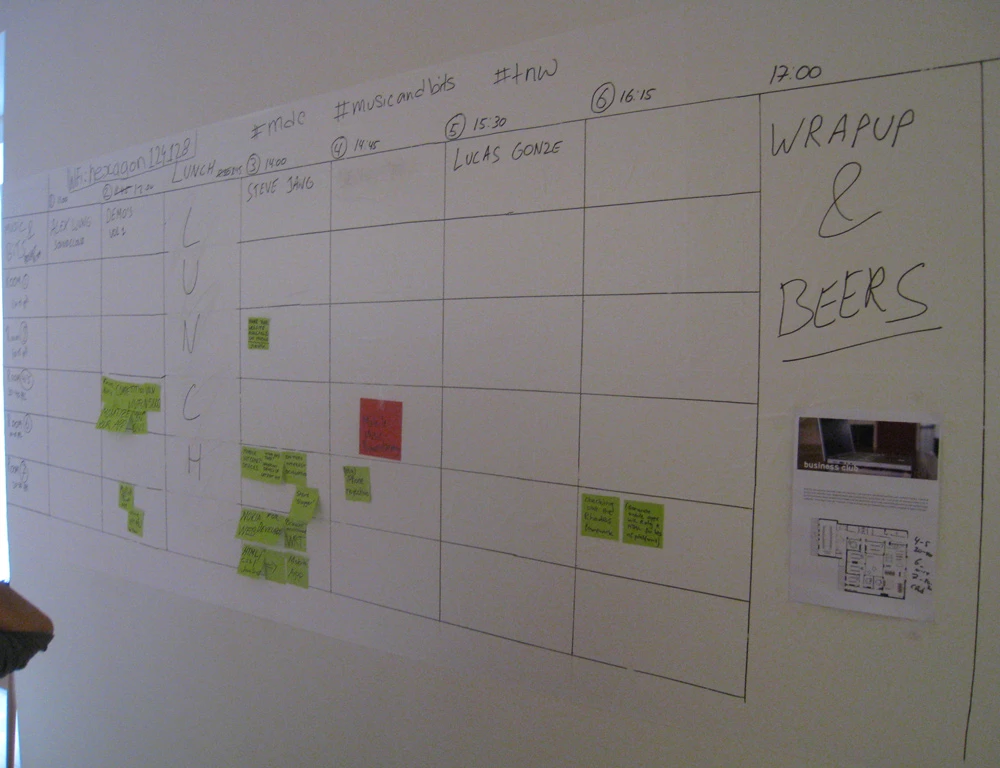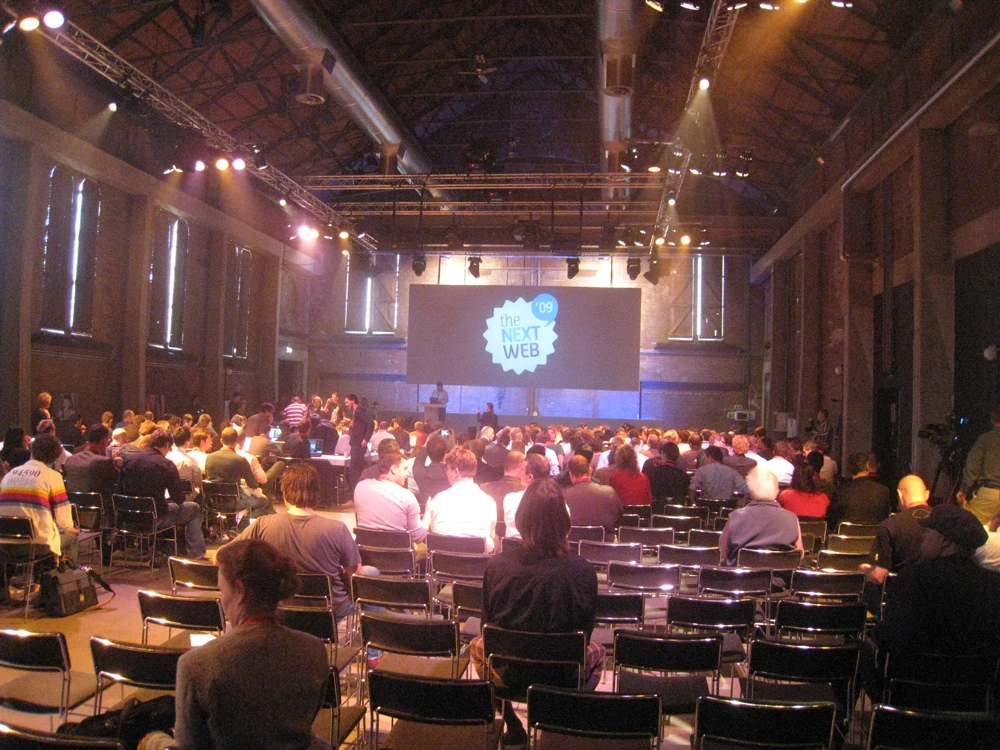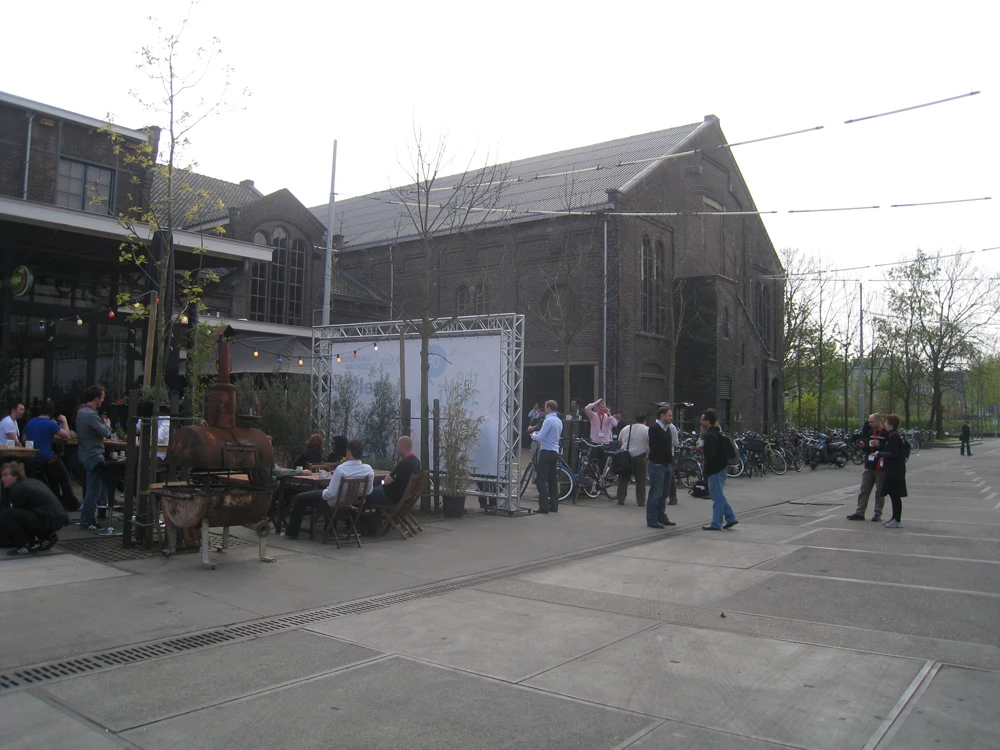I am an Intranet & Web Developer working for Amgueddfa Cymru and this blog entry is about The Next Web Conference held in Amsterdam 15th - 17th April.
If you avoid the tourist areas after 9pm, Amsterdam is a calm and laid back city. People are friendly and the only dangers are the thousands of cyclists criss-crossing pavements and over-enthusiastic refuse collection trucks spinning three-sixty at road junctions – I believe the trams are there to provide safe passage over longer distances.
Anyhow, the first “unConference” day was a little loose in how it was arranged, but intentionally so. I ventured to the Mobile DevCamp and Music & Bits sessions:
Steve Jang, CMO of social music service iMeem gave away one of his insights: despite Apple’s current dominance in the market, Google’s Android shouldn’t be underestimated and would provide decent mobile development/financial opportunities - I should clarify that this conference had money iconography and business models roaming all over it.
Continuing with the music theme, Lucas Gonze presented one of the infrequent talks of the three days that tried to avoid direct business model chatter. His main reference point was Fresh Hot Radio, which allows people to propagate musical playlists and tracks in a sympathetic manor. Most of his selections appeared to be demos, third drafts found on web forums and such (all good); but his point was that the original author information was not lost through web propagation (embeds and share links). The website pages were simple, but they always tried to use the sometimes-scarce sources of artwork from the actual musician - it’s about the music after all. Jolly good.
Other sessions discussed and demonstrated musical ideas using mobile phones to aid interaction between the user and music. One example used an accelerometer as part of a university project, Mustick (PDF) - interesting because the development time was short.
There were Sun Microsystem start-up presentations intermittently throughout the next couple of days. The Mendeley pitch was engaging in that it approached the research world: organise your research papers across multiple computers and help find trends within your particular research field (museum's are full of curators and researchers). It is built on Adobe Air, I believe - the proliferation continues.
Andrew Keen conceptualised the state/ideal state of the web using both flamboyant and succinct language. I enjoyed his enthusiastic approach, even if certain conclusions appeared to be driven by the need for a good sound bite, rather than firm logic - "web 2.0 is dead, long live Twitter".
A Dave sidetrack: Andrew Keen used a Johannes Vermeer painting to demonstrate a particular intensity of human interaction: Woman reading a letter. I couldn’t recall the artist Jonathan Janson at the time, a fact that you wouldn't have known, but he created a humorous painting influenced by Vermeer: A young girl writing an email.
Turn on the radio, read a web article, visit the next web conference, Twitter is doing the rounds - that is fine and dandy. It can be used for good (twestival.com), it has an open API - aggregate this source into your website/application. A conference recommendation to help control your Twitter action appeared to be: Tweet Deck, another Adobe Air application.
Matt Mullenweg, WordPress guy, had a similar vibe to the Jonathon Harris’ chat at the FOTB ’08, which I didn’t object to at all. The word “why” was mentioned. Fair enough I say.
Eric A. Meyer shared his love of JavaScript and how it allows developers to control browser standards: for instance, using JavaScript and CSS to enable keyboard control of flash media players. Cleaning up Microsoft Internet Explorer to make it a standards-compliant browser, from IE5 - IE8 – see Dean Edwards work. Meyer's conclusion: web standards can be forced on the web browsers without the need for plug-ins, and backward compatibly could be maintained.
Another Dave sidetrack: since leaving the conference I have wandered through the saveIE6 website. My web developer love of IE6 has been restored, I have seen the light - I shouldn’t fight it. 
Michael J. Brown, an architectural theorist and practitioner (nice), completed the conference. He pointed out that current 3D environments have a little too much benzoic sulfinide (artificial sweetener) [Mr. Brown didn't use this kind of language] - they fail because they are merely trying to replicate the real world. Who needs hardware? He finished with the cocoon concept, a learning pod.
Exhibition ideas:
A scaled back research project of the cocoon: It would involve three back-projected screens, a touch screen and/or blue-toothed mobile phone with an accelerometer (you’re missing the point Dave - my head is in my hands) - Minority Report on a shoe-string.
Based on the MiNiBar in Amsterdam, where you have a key to your own fridge, create an installation where you have key to a locked cabinet and people are only allowed to explore the particular contents of their chosen cabinet.
Yes, I think I’ve been affected.
Conference take-aways:
- JavaScript is still great
- The world of APIs and data aggregation wont stop tomorrow - disparate sources are being published somewhere as one
- You can’t create communities, they already exist
- The world wide web is the social network








